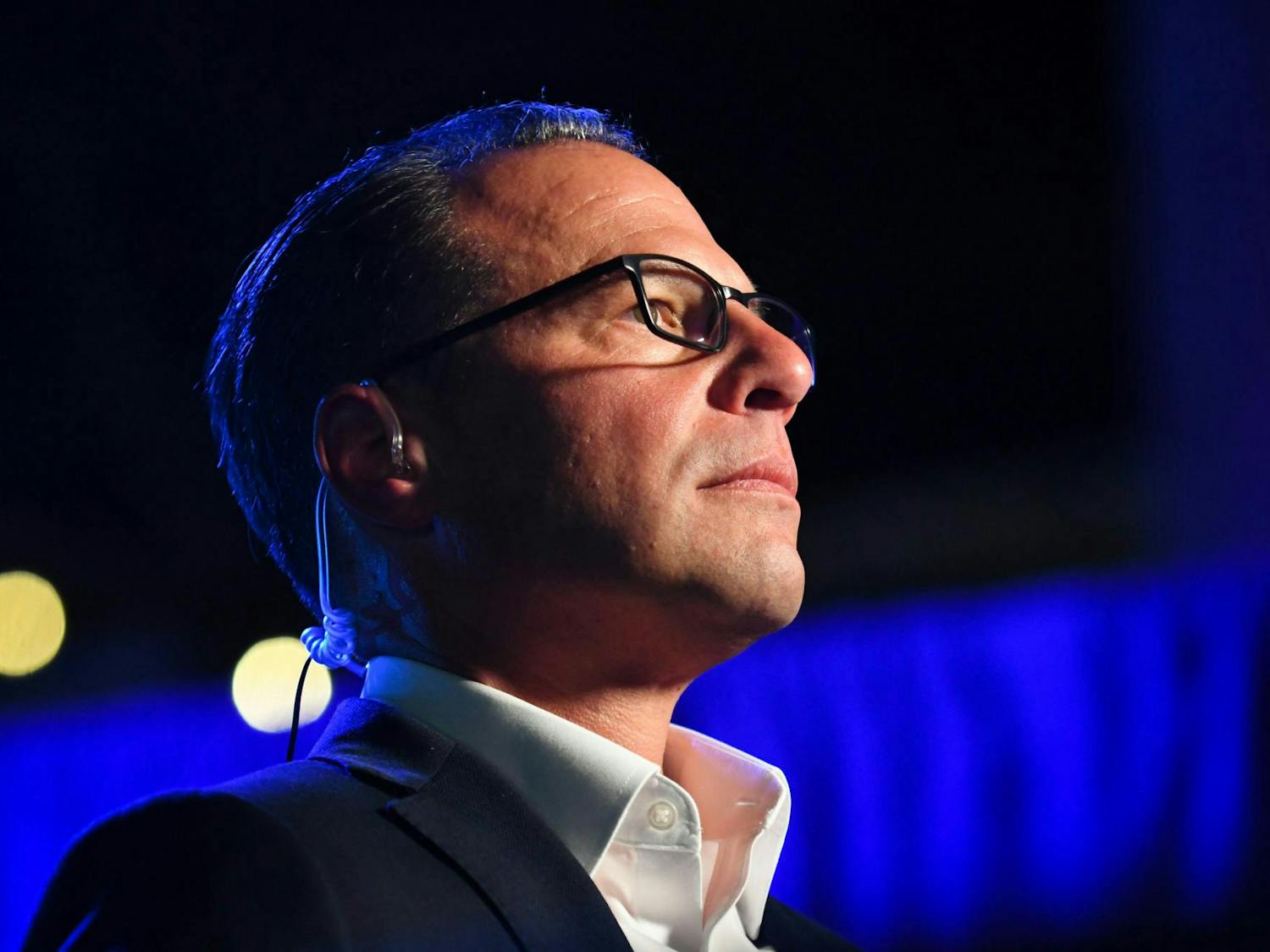Eighteen months after the brutal slaying of University biochemist Vladimir Sled, the murder trial for two of the people charged with killing him is getting set to begin. The trial -- scheduled to start at 9:30 a.m. on Monday in Room 702 of the Criminal Justice Center in front of Common Pleas Judge Eugene Clark -- is expected to last about three weeks, according to Assistant District Attorney Dick Carroll, who is prosecuting the case. Eugene Harrison, 33, and Yvette Stewart, 30, are being tried for murdering the 38-year-old Russian-born researcher near 43rd Street and Larchwood Avenue after he tried to prevent them from robbing his fiance, then-University researcher Cecilia Hagerhall, on October 31, 1996. The pair are also being charged with the similar robbery of Philadelphia Daily News driver Arthur Palespini earlier that day. A third defendant, Bridgette Black -- who has admitted to being the one who stabbed Sled to death -- is scheduled for a "degree-of-guilt" hearing next month, in which she will not contest her role in the killing and ask a judge to determine exactly what crime she committed. Black has agreed to testify for the prosecution in Harrison's and Stewart's trial. Prosecutors have not promised her anything concrete in return, but they will appear at her hearing to tell the judge she cooperated. During the first week of the trial, defense attorneys are expected to challenge the admissibility of statements made by the defendants after their arrests, and will likely attempt to suppress other evidence as well. The next step will be jury selection. Opening statements are expected to begin Friday or the following Monday. Harrison's and Stewart's statements pose a particular problem for Carroll, because they can only be used against the person who actually said it -- not the co-defendant. Since the same jury is trying them both, he will have to delete any reference to Stewart in Harrison's statement and vice versa. That method often enables prosecutors to get around the accused's constitutional right to face their accuser, although recently the courts have decided the statement is still inadmissible if a jury can conclude from the context who is being talked about. While Carroll said the statements are "not crucial," he wants to use them to corroborate Black's testimony. "She's a bit of a corrupt source" since a jury might believe she is lying to earn herself a lighter sentence, Carroll said. "I don't want to make any unnecessary gambles. There's a lot riding on this." He said there is a small chance he will still decide to try Harrison and Stewart separately, or take the rare approach of trying the case together but with two juries. However, Carroll said he does not think he will have to resort to either of those methods. The prosecution's three primary witnesses will likely be Palespini, Hagerhall and Black, Carroll said. But Hagerhall, 34, who is flying in from Sweden to testify, cannot positively identify the defendants because her glasses were knocked off during the struggle. In a preliminary hearing last year, when asked to identify Harrison, she pointed to an attorney. Palespini is able to identify Harrison and Stewart, and since the two robberies were so similar his testimony ties the defendants to the Sled robbery as well, according to Carroll. Black --Ewho was uninvolved in the prior robbery and has expressed extreme remorse for her role in the murder -- would testify "consistently with her statement," Carroll said. In that statement, she says she and Stewart were waiting in the getaway car while Harrison began the robbery. When Sled fought back, Black jumped out of the car to help him, and ended up stabbing Sled to death. Stewart, meanwhile, remained in the car and fired a gun, according to Black's statement. Stewart denies that accusation, and maintained in her statement that she stayed in the car and remained largely ignorant to what was going on. Hagerhall also heard the gunshots, according to Carroll. Since both Harrison and Stewart admitted in their statements that they were at the scene of the crime, their lawyers are expected to argue that they did not know Black had a knife, rather than that they are completely innocent. Attorneys for Harrison and Stewart declined to comment this week.
The Daily Pennsylvanian is an independent, student-run newspaper. Please consider making a donation to support the coverage that shapes the University. Your generosity ensures a future of strong journalism at Penn.
Donate







